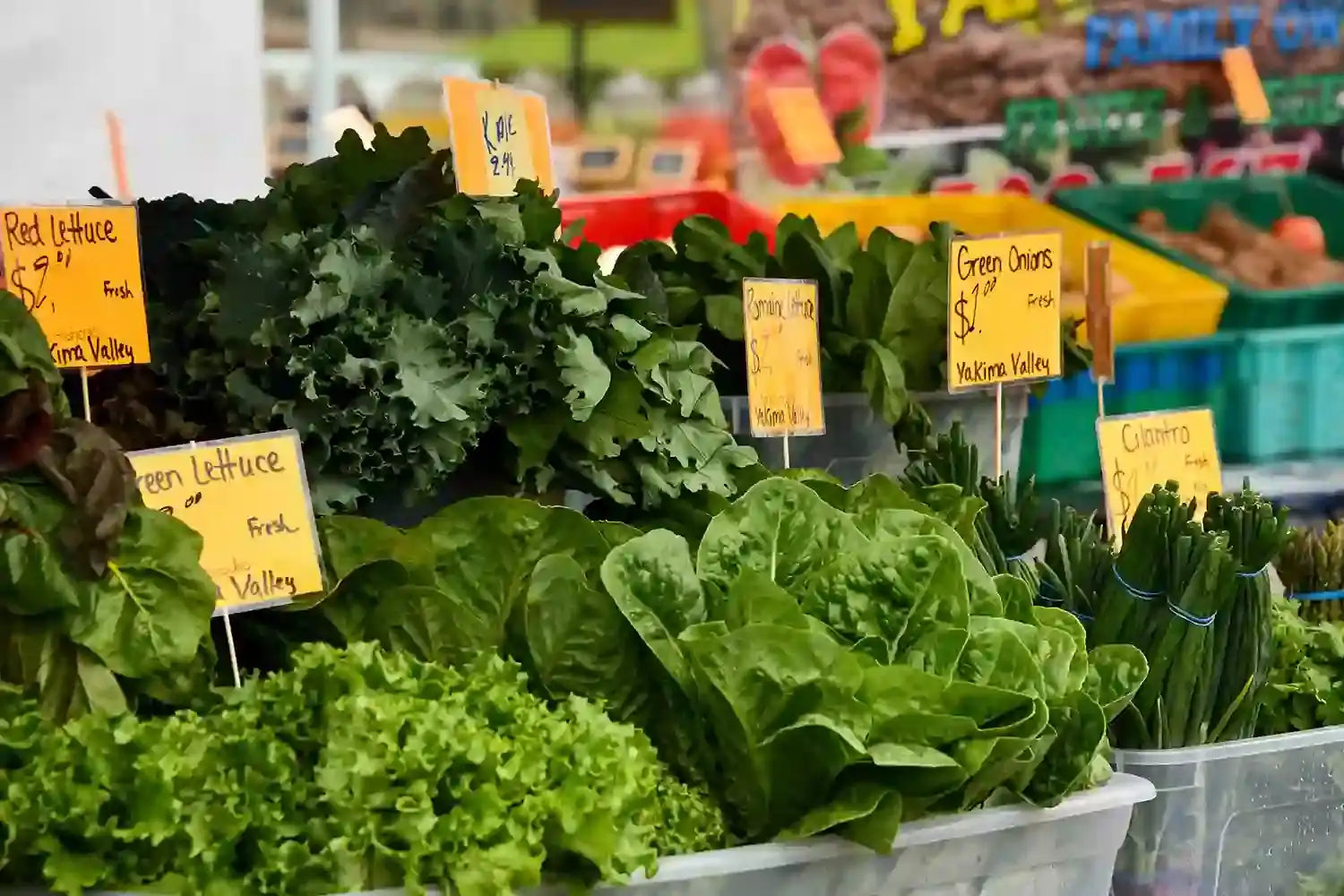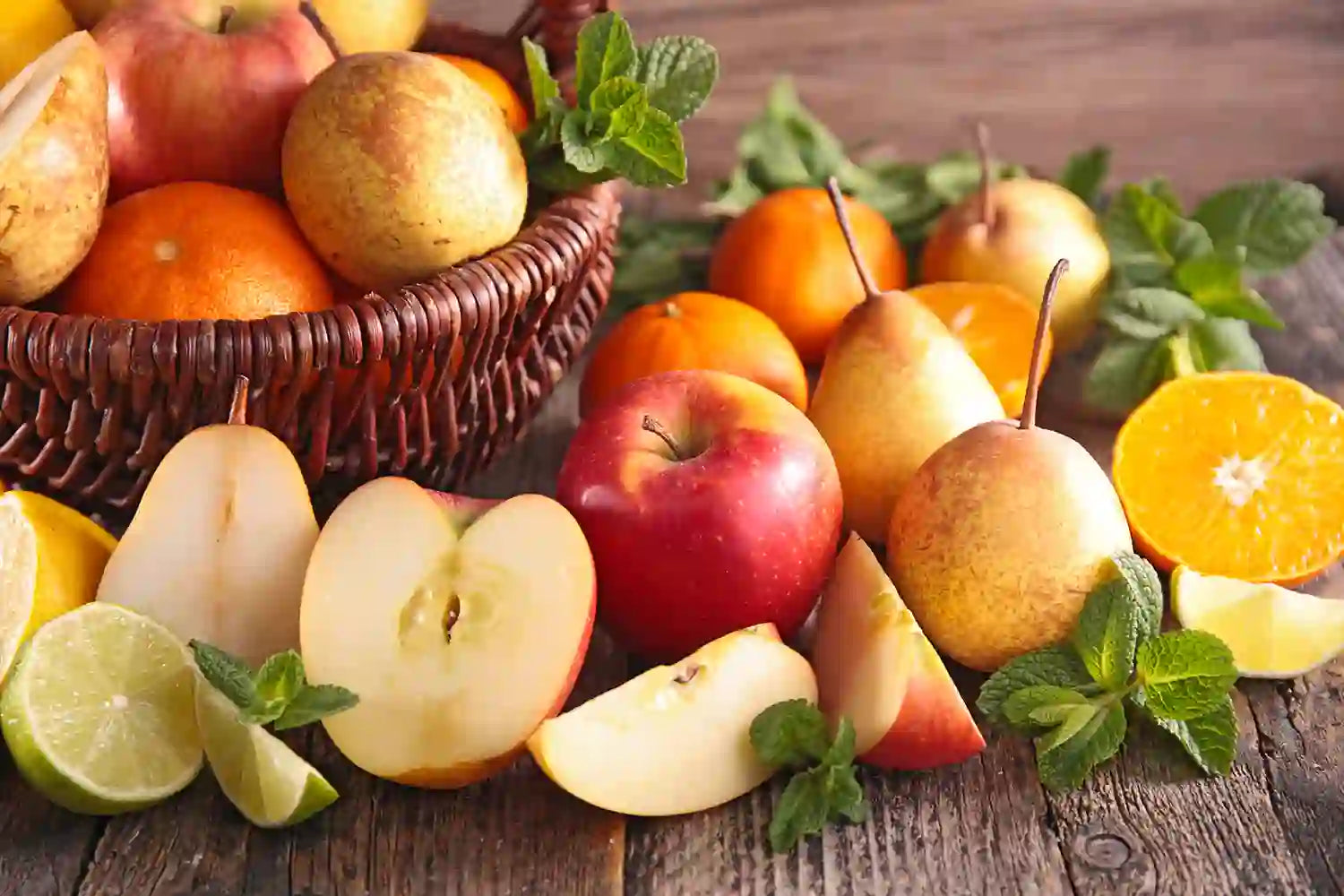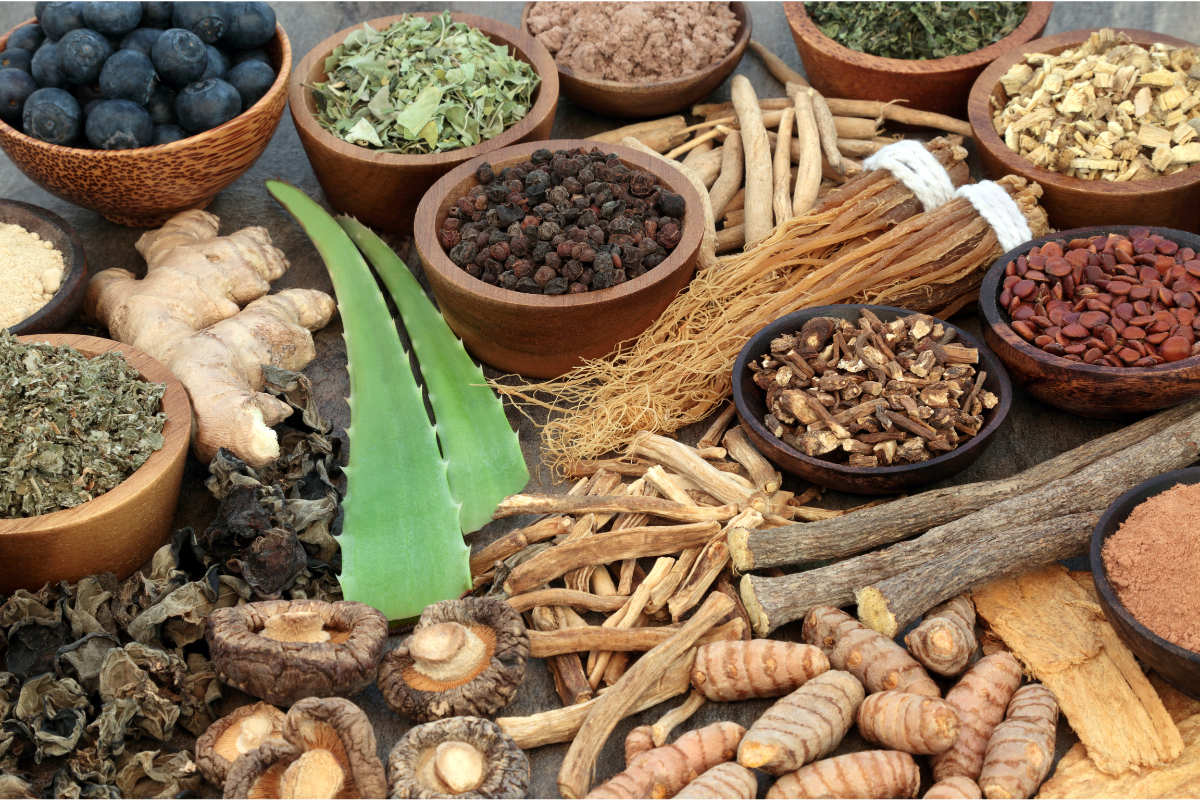Discover the most nutritious leafy greens and how to incorporate more of them into your everyday diet.
If you’re familiar with the principles of the Hallelujah Diet then you know that a diet filled with raw fruits and vegetables is the key to a healthy, fulfilling lifestyle. While all fruits and vegetables are healthy, when it comes to nourishment and nutritional power, leafy greens steal the show.
Leafy greens are loaded with vitamins A, C, E, and K, and minerals such as calcium, iron, magnesium, potassium, and zinc. A diet filled with nutrient-dense leafy greens has been shown to bolster your immune system, reducing risks of sickness and disease. Packed with chlorophylls, leafy greens aid in detoxifying your body and boosting your energy levels. On top of all that, leafy green vegetables are low in calories, filling you up without tipping the scale.
Read on to learn about our four favorite leafy green vegetables, their health benefits, and how to incorporate more of them into your everyday diet.
Collard Greens
Collard greens are one of the most nutrient-dense foods out there! Rich in calcium and fiber this superfood promotes a healthy immune system, maintains strong bones, and eases colon discomforts.
Calcium
Believe it or not, an eight-ounce serving of collard greens has more calcium than a cup of dairy milk! That’s right — one serving of collard greens contains 360 milligrams (mg) of calcium, 60 mg more than an eight-ounce serving of milk, and 30% of your daily value.
Calcium serves many purposes within the body — from bone and teeth health to muscular function. Getting enough calcium in your diet is even more important as we get older. As we age, our bones become more brittle and fragile, making us more susceptible to injuries. A diet rich in calcium can help to ensure that our bones remain strong, our hearts maintain a regular rhythm, and our muscles stay nimble.
Fiber
Adults need between 25 and 35 grams of dietary fiber to maintain a healthy diet, however, the average American only consumes about 15 grams daily. By adding a serving of cooked collard greens to your diet, you’re nearly a third of the way towards your daily value!
Fiber helps our bodies regulate sugar usage, control LDL cholesterol, and maintain regular and comfortable digestion. Fiber is a nutrient that cannot be digested, absorbed, or broken down by the human body. As a result, fiber does not cause a spike in blood sugar and helps us feel fuller for longer. Eating a sufficient amount of fiber can also help to avoid colon discomforts, like hemorrhoids and constipation. By promoting more regular digestion, increased fiber consumption has also been linked to a reduced risk of diseases of the colon.
Kale
Another one of our favorite leafy green superfoods is kale. Similarly to collard greens, kale is abundant in vitamins, minerals, and antioxidants. Kale’s nutrient-dense composition has been shown to reduce risks of mental and physical health conditions and help maintain a sustainable and healthy lifestyle.
Antioxidants
Have you ever heard of environmental toxins called free radicals? They can build up in our bodies and cause cellular damage over time. Luckily antioxidant-rich foods like kale help to prevent the build-up of free radicals from happening in the first place. The antioxidants in kale cleanse our bodies by breaking down unwanted toxins, reducing the risk of negative health conditions — like inflammation, heart disease, and diabetes — from occurring.
Vitamin C
Humans are one of the few creatures that cannot synthesize Vitamin C internally. Our vitamin C levels rely entirely on the intake of foods and supplements, which is why it’s so important that our diets are plentiful in vitamin C-rich foods. Kale is jam-packed with Vitamin C. A one-cup serving of raw kale contains 80 milligrams (mg) of Vitamin C — that’s more than 100% of your daily value.
Vitamin C plays a critical role in supporting our physical and mental health. Many of us know vitamin C for its immune system-boosting abilities, but did you know that high levels of vitamin C correlate with low levels of cognitive degeneration? In addition to helping your body heal from illness and arming your white blood cells to fight infections, high levels of vitamin C have been found to significantly reduce the risks of cognitive impairment and protect against memory loss.
Folate
Folate, the natural form of folic acid, is an essential B vitamin that promotes healthy red blood cell production, produces DNA and RNA, and is most known for its role during pregnancy. Dark leafy greens like kale contain the highest folate levels of any food — with 141 mg of folate in a 100-gram serving of kale.
Folate is essential in ensuring a healthy and successful pregnancy. During the earliest stage of pregnancy, women are recommended to consume 400 mg of folate to prevent birth defects and aid in the development of a healthy fetus. In addition to supplements, kale, and other dark leafy green vegetables, provide more than 30% of the recommended intake, helping expectant mothers meet all their nutritional needs while maintaining a plant-based diet.
Spinach
Maybe Popeye was onto something. We all remember the cartoon sailor with spinach-sparked superpowers, right? As it turns out, spinach is one of the most nutrient-dense leafy greens out there.
Vitamin A
Spinach is an excellent source of vitamin A, as beta-carotene, containing over 180% of your daily value in a two-cup serving. Vitamin A is an immune system booster, aiding in the production of T-cells, which help your body fight off bacteria and viruses. Ensuring you have enough vitamin A in your diet is essential, especially during cold and flu season!
Vitamin K
In addition to vitamin A, a single serving of spinach also contains more than 200% of your daily value of vitamin K. Vitamin K is important for both healthy aging and quality of life as it plays an essential role in bone health and mobility. Known for its bone-strengthening properties — vitamin K helps to produce the proteins in bones and prevent bones from weakening. High levels of vitamin K have been linked to a reduced risk of mobility disabilities, including cardiovascular disease and osteoarthritis.
But before you start filling your diet with heaps of spinach, take note of vitamin K’s blood-clotting abilities. Vitamin K’s blood-clotting properties help us heal from injuries and prevent excessive bleeding, but if you are on a blood thinning medication, consult your physician so they can adjust your medication to accommodate your diet.
Iron
In the absence of meat, many vegans are commonly concerned with whether or not they’ll meet their daily iron intake. But with a well-balanced, plant-based diet, you can rest assured that your iron needs are met. One cup of cooked spinach can get you halfway there with nearly 50% of your daily value of iron — 3.7 mg.
Iron deficiency anemia is one of the most common health conditions in America, causing fatigue, weakness, and dizziness. Iron makes hemoglobin in the blood, which carries oxygen from your lungs to other parts of your body. Increasing your intake of iron-rich plants and supplements has been shown to reduce the risks of anemia and power your red blood cells with the fuel they need to maintain energy levels, steadiness, and concentration.
Microgreens
Small, but mighty — these tiny sprouts pack a punch! Microgreens are seedlings of vegetables and herbs. While the nutritional value of microgreens varies based on the type, microgreens are more nutrient-dense than their fully-grown counterparts, containing between four and twenty times more nutrients than mature plants. Arugula microgreens, for instance, contain up to nine times more nutrients than mature arugula, including essential vitamins, minerals, and beneficial phyto-compounds.
Plus, if you’re interested in growing more of your own food, growing microgreens is a great way to get started. You don’t need much real estate to start your microgreen garden — if you’ve got a well-lit windowsill, you’re ready to go!
Raw or cooked?
Should leafy greens be eaten raw or cooked? Raw vegetables tend to have a higher concentration of vitamins, which can oftentimes diminish during the cooking process. However, it is easier to eat a large serving of some leafy greens when they are cooked rather than raw, thus delivering more minerals . A serving of spinach, for instance, has three times more iron when it is steamed, compared to a serving of raw spinach. Get the best of both worlds by incorporating a combination of raw and cooked leafy greens into your everyday diet.
Upping your daily intake of green leafy vegetables is easier than you might think! Below are some of our favorite green-packed recipes to satisfy your cravings.
Green Smoothie
When you think of greens, salads probably come to mind. But have you considered that drinking your greens could be even more delicious and nutritious? Our green smoothie recipe pairs spinach, banana, and walnuts with Hallelujah Diet B-Flax-D powder to deliver a powerful dose of vitamins, minerals, healthy fats, and fiber. Drink this superfood-filled smoothie in the early afternoon to feel fulfilled all day long!
Plus, adding leafy green vegetables to your fresh juice blends helps to maximize your nutrient intake! Blending vegetables breaks down the fiber more efficiently, making the nutrients more readily available for absorption.
Easy Collard Wraps
Double down on your leafy greens with collard greens and microgreens in our easy collard wrap recipe. As its name suggests, this quick and simple recipe comes together in under ten minutes and is perfect for busy days and weeknight suppers. Pack all your favorite vegetables into one dish!
Spinach and Strawberry Salad
The spinach strawberry salad tastes like summertime all year round! This is one of our favorite recipes from our Hallelujah! Simple Weekly Meal Plans cookbook. Loaded with plant-based nutrients, Marilyn’s spinach and strawberry salad will have vegans and non-vegans alike coming back for seconds!






